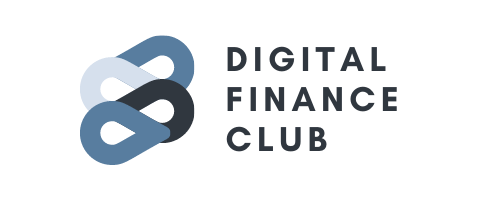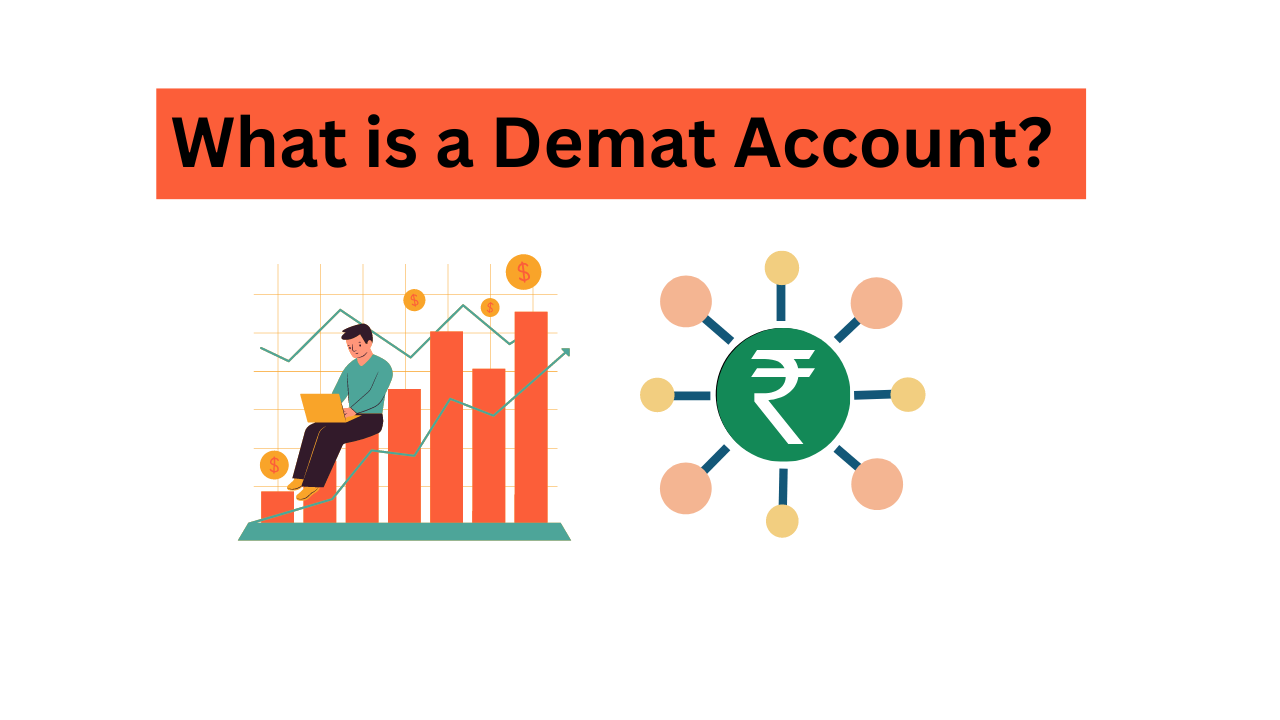If you are looking forward to stepping into the Indian Stock Market and want to understand what a Demat account is, this article will explain a Demat account in detail. The article covers important details about the Demat Account, such as its benefits, features, types, and charges.
Meaning of a Demat Account:
A Demat account is a dematerialized account that converts physical shares and physical share certificates into electronic form in the securities market. It holds various financial securities, such as Equity Stocks, Mutual Funds, ETFs, and SGBs. Demat accounts were introduced in India for the first time in 1996 to eliminate the paperwork involved in investment.
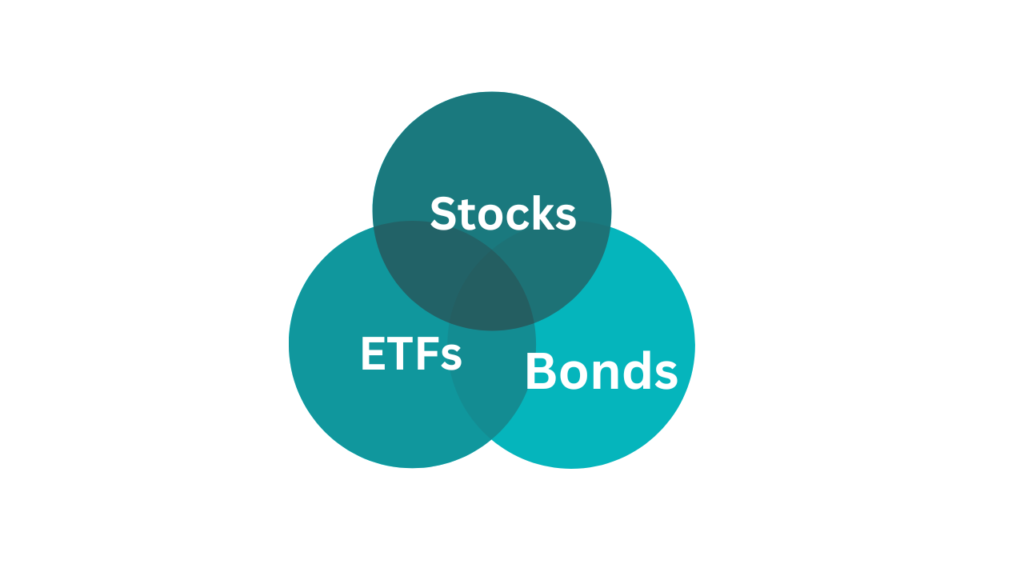
It's important to understand that a Demat account only holds the securities. You will need a Trading account to buy or sell securities such as stocks, mutual funds, or bonds. Again, to trade, you will need to fund your Trading account by linking it to a Bank account.
Demat Account Benefits:
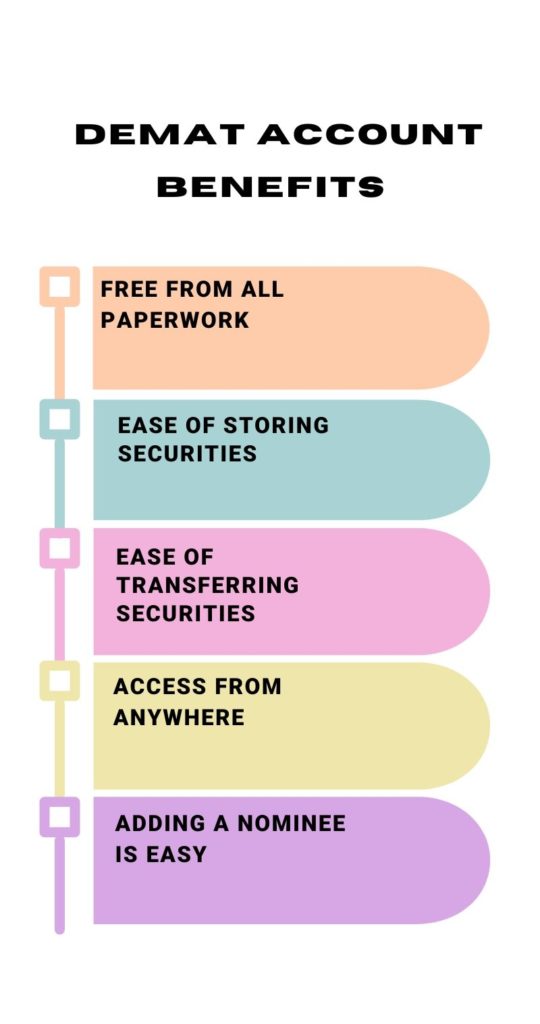
Free from all paperwork:
Before the Demat account was introduced, the investment involved physical paper certificates, and to have shares of a company, one had to keep dozens of paper certificates safely. However, there used to be a constant risk of these certificates being damaged, lost, or stolen.
Ever since the Demat account was introduced, investors no longer had to deal with any paperwork since every certificate was issued and saved in electronic form.
Ease of storing securities:
With a Demat account, you can store any number of Stocks, Mutual Fund, ETFs, or Bonds without any difficulty. Besides, you can check the details of the securities in your Demat account anytime in a nice graphical format.
If we compare it with how things were before the Demat account was introduced, one hardly had so much ease of things. One had to keep the essential calculations and track of everything on paper alone.
Ease of transferring securities:
Before the Demat account existed, it took people many days to buy and sell shares, complete all the paperwork, and transfer shares. However, with a Demat account, you can quickly transfer shares.
Access from anywhere:
Most Demat account apps these days are cross-platform apps, meaning you can access your Demat account from any device since there is a suitable app for all devices, be it a Laptop or a mobile device.
It gives you the advantage of accessing your Demat account from anywhere, on the go. It also helps you closely monitor your portfolio and make the necessary adjustments quickly.
Adding a Nominee is easy:
A nominee is a person who will own the securities if ever the actual owner of a Demat account expires. SEBI has made it mandatory to add a nominee for every demat account.
Now, if one were to add a nominee back in the past when Demat accounts didn't even exist, it would undoubtedly be a complicated process with a lot of paperwork and might take several days. With a Demat account, adding a nominee is just a matter of a few minutes, and most importantly, you can add a nominee online.
Demat Account Features:
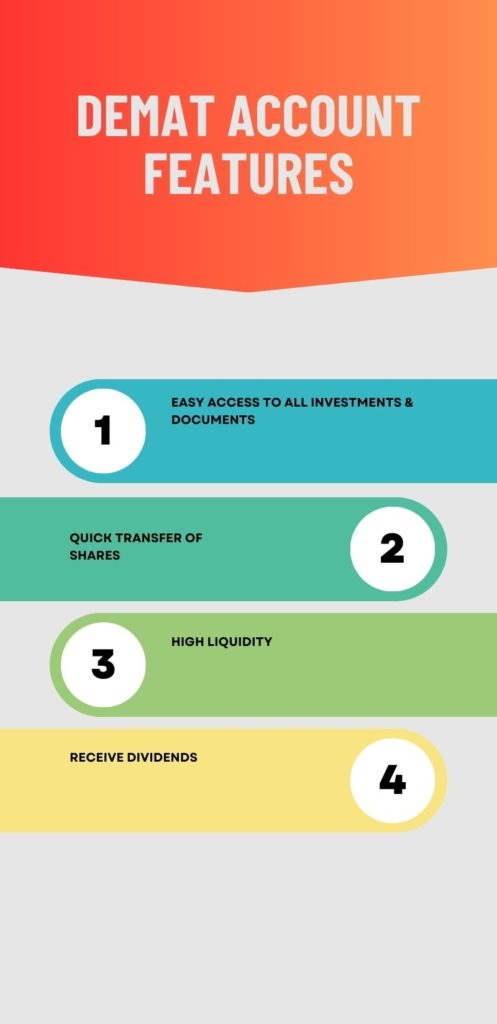
Easy Access to All Investments & Documents:
A Demat account gives you quick and easy online access to all your investments and investment-related documents. Most importantly, you can access them from any device since most Demat platforms have applications for all devices. Besides, a Demat account also offers an excellent overview of everything, and it always helps in taking quick action whenever needed.
Quick Transfer of Shares:
With a Demat account, the transfer of shares takes only a few minutes, and thus, settlement can be done quickly. It not only saves a lot of time but also saves us from unnecessary worries.
High Liquidity:
As the transfer of shares became quicker with Demat accounts, this also led to comparatively high liquidity in the market, which is undoubtedly much better than it used to be. Hence, you can sell your shares in the market anytime you want.
Receive Dividends:
You can earn from investments in two main ways: price appreciation and dividends. The important thing to consider is that once you link your bank account with your Demat account, dividends will be auto-credited to your bank account, which makes things much more convenient for investors.
How Does a Demat Account Work?
Before opening a Demat account, it's essential to understand how it works in the real world. A Demat account holds purchased shares for one day or as many days as one wants.
However, to hold shares, you will need to buy them, and for that, you will need a Trading account linked to your Demat account. Interestingly, you can open a Demat account first and then a trading account.
However, most online brokers these days allow you to open a Demat account and a Trading account together, and it actually makes things a lot more convenient for people. When you place a Buy order, the depository participant immediately forwards it to the stock exchange.
The stock exchange then finds a seller for that price, and the transaction is forwarded further to the clearance house to debit from the seller's demat and credit the same to the buyer's account. You will receive the shares in your demat account in T+1 days, where T stands for the day of the order execution. The amount for the shares purchased will be debited from your Trading account.
When you place a Sell order, the stock exchange will look for a buyer for this price, and after it finds one, it will debit the shares from your demat account and credit the same to the buyer's account. You will receive the amount for shares sold to your Trading account.
Demat Account Types:
Next, you must familiarize yourself with the different types of demat accounts. There are three types: Regular, Repatriable, and Non-repatriable.
- A Regular Demat Account is for all residing Indian citizens.
- A Repatriable Demat Account is for non-resident Indians. It allows one to transact in the Indian stock market using one's NRE bank account.
- A Non repatriable Demat Account is also available for Non-resident Indians, but this type of account allows you to not transfer funds from abroad. You must link an NRO bank account to use it.
Demat Account Opening Process:
It's finally time to see how to open a Demat Account, and you can open a Demat account online. However, you must keep the following documents handy before starting the process:
- ID proof
- PAN card
- Aadhaar card
- Aadhaar card registered mobile number
- Bank account details
You can open a Demat account with any reliable online broker, and there are many reasonable discount brokers available these days, such as Zerodha, ICICI Securities, Angel One, Upstox, and 5paisa.
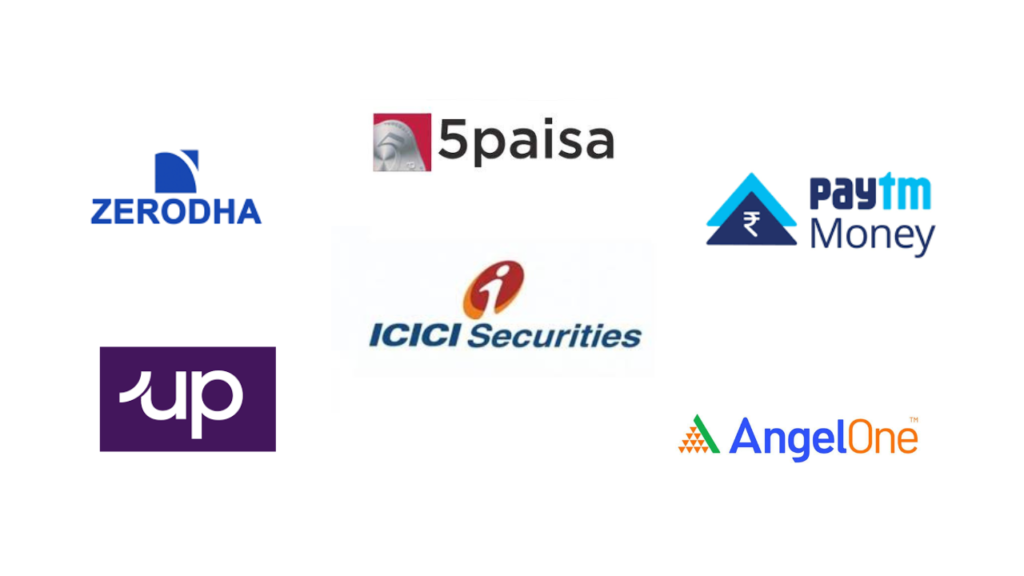
To begin the process, you need to go to the broker's official website and hit the Get Started or Signup button.
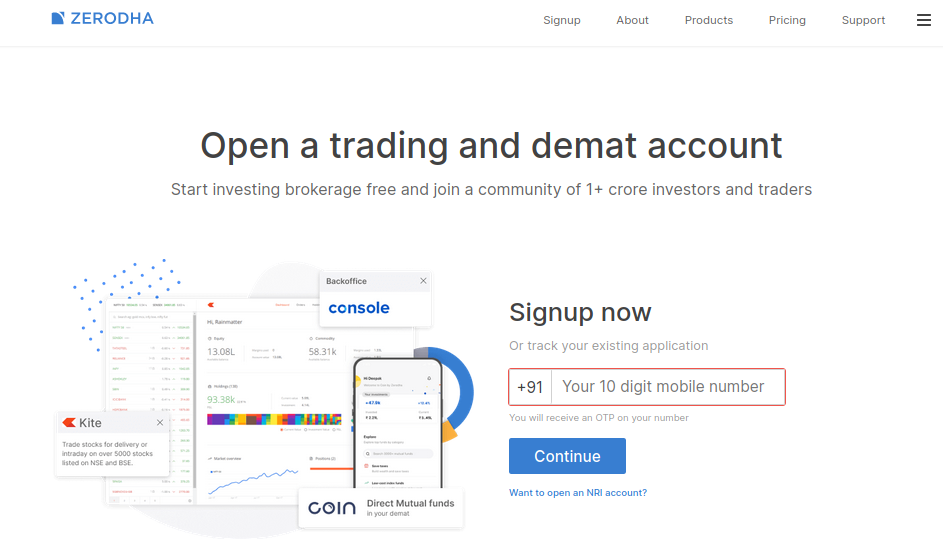
Next, you will need to sign up with your email ID and mobile number. After that, you need to complete the email and mobile verification process. In the next step, you will need to fill in the application form providing personal details like name, address, and occupation. Next, you will need to link your savings account.
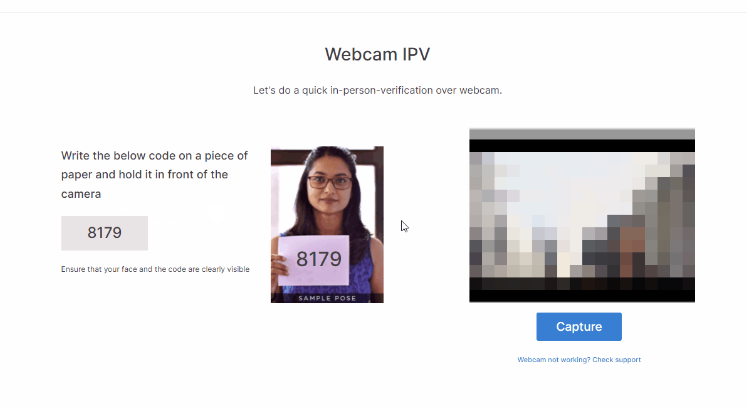
Once you fill out the application form, you will have to complete your KYC verification, provide the various document details, and submit a digital copy of your documents. After that, you will need to complete the In-Person verification (IPV).
Once done with this, you will need to eSign your application and you will be redirected to the NSDL (National Securities Depository Limited) website. Over there, you will need to enter your Aadhaar card number and verify it using the OTP sent to your Aadhaar card's registered mobile number. After that, you can review and submit your application.
Once you submit your application, the broker's review team will review your application, and if everything goes well, it will email you the login credentials within 24 to 48 hours.
How to Use a Demat Account?
You can use a Demat Account to hold any type of financial security, including stocks, mutual funds, SIPs, ETFs, and bonds in the share market. You can create multiple watchlists to add different securities. However, to keep any financial security in your Demat account, you must buy it first. I have already explained how buying works in a Demat Account.
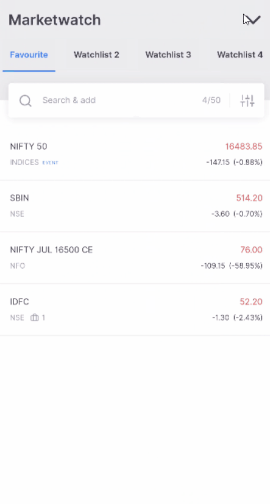
After you place a Buy order, the exchange will take T+1 days to credit the shares to your Demat account, while the amount will be deducted immediately from your Demat Trading Account Funds section.
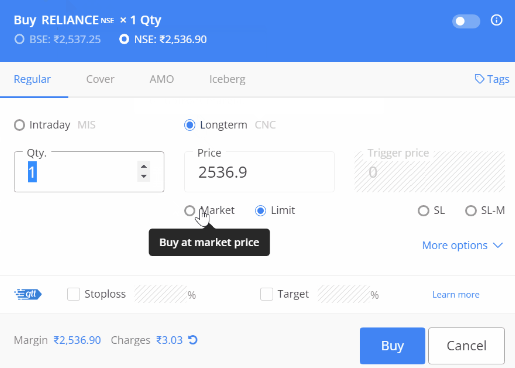
Another essential thing to bear in mind is that you can only hold shares bought from the market. While you can earn profits from Short Selling in Intraday trading, it is not possible in delivery trade.
You can hold a financial security in your Demat account for as many days as you want unless it expires as in Options. You can hold shares for 1 day as in BTST, or a few days to a few weeks as in Swing trading.
You can hold shares or any financial securities for years as a long-term investment. However, if you want to place a regular Stop Loss in Delivery positions, you have to do it almost daily.
However, there is a workaround: placing a GTD order instead of a regular buy order while buying. A GTD order is valid for 1 year and allows you to place a Stop Loss and Target price while placing a Buy order. However, most experts recommend not placing a Stop Loss when you invest with a long-term perspective.
Demat Account Charges:
It's always wise to be thoroughly familiar with the charges of a trading and investing platform before opening an account with it. The charges vary from broker to broker. While some brokers charge an Demat Account Opening charges, others keep account opening free. For example, Zerodha charges ₹200 for account opening, while Upstox has ₹0 charges for account opening.
Brokers also charge AMC or Annual Demat Account Maintenance charges. While most brokers charge AMC, there are a few brokers that don't. Dhan, Fyers, and Upstox don't charge AMC, while Zerodha charges an AMC of ₹300.
Another essential thing to consider in terms of charges is brokerage. Brokerage charges vary from broker to broker. While most brokers charge brokerage, GST, and service tax on Intraday trading, they don't charge any brokerage on Delivery trades. You can always compare the various brokers and choose the right stock broker with the best demat account for your requirements.
Conclusion:
I have provided you with an in-depth explanation of a Demat account, walking you through the various important details. I am sure you now have a clear picture of how a Demat account works, and you are good to go with opening a Demat account.
Interestingly, it takes just a few minutes to open a Demat account these days with so many online brokers available. The advent of a Demat account has certainly revolutionized trading and investing forever.
